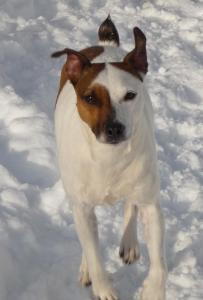Can Diet Play a Role in Controlling Seizures in Dogs?
- posted: Mar. 25, 2017
 Purina Launches Pro Plan Veterinary NC NeuroCare Diet
Purina Launches Pro Plan Veterinary NC NeuroCare Diet
Seizures in dogs can be scary to witness and may be caused by a number of medical conditions. One of the most common reasons we see seizures in dogs is epilepsy. While most seizures can be controlled using anti-seizure drugs, approximately one third of dogs who are on medication will still experience some seizure activity.
Adapted from human research, several studies show that certain diets called “ketogenic diets” which are high fat, low carbohydrate diets containing medium chain triglycerides may help reduce seizure activity in dogs who are on anti-epileptic drugs and who are still experiencing seizures. It is important to note that these diets are not meant to replace drugs for seizure control, but rather to reduce seizure activity in patients who continue to have break-through seizures on their current medical therapy.
Purina Veterinary Diets recently developed a ketogenic diet called NC or Neuro Care for the purpose of aiding in seizure control and also helping to treat another condition known as cognitive dysfunction which is a bit like Alzheimer’s disease.
The main research was funded by Purina and took place at the Royal Veterinary College in London. Published in 2015, twenty-one dogs completed the six month study where half were fed the NC diet and half a placebo or regular diet. Those eating the ketogenic diet had a significant decrease in seizure activity compared with the placebo group. The dogs in the study were already on anti-seizure drug therapy, so the diet was used as an adjunct to medication.
“The goal of the diet is to add ketones as an energy source for the brain…and the medium chain triglycerides may also have direct anti-seizure effects by blocking certain receptors in the brain.” (DVM360.com staff)
The following statistics were also published by DVM360.com: Over 71% of the dogs showed a reduction in seizure frequency, though dogs with cluster seizures did not statistically improve. Nearly half of the dogs showed 50% or greater reduction in seizure frequency and 14% had no seizures during the study.
This diet looks promising for dogs with certain types of refractory seizures and may reduce the number of seizures experienced by dogs whose seizures are not completely controlled with medications alone. The diet was not studied in cats.
If you have questions about this diet, don’t hesitate to contact the Patton Veterinary Hospital for more information.
This blog brought to you by the Patton Veterinary Hospital serving Red Lion, York and the surrounding communities.
Information Sources:
DVM360.com February 9. 2017
Br J Nutr. 2015 Nov 14; 114(9): 1438–1447.
Published online 2015 Sep 4. doi: 10.1017/S000711451500313X
Location
Patton Veterinary Hospital
425 E Broadway
Red Lion, PA 17356
